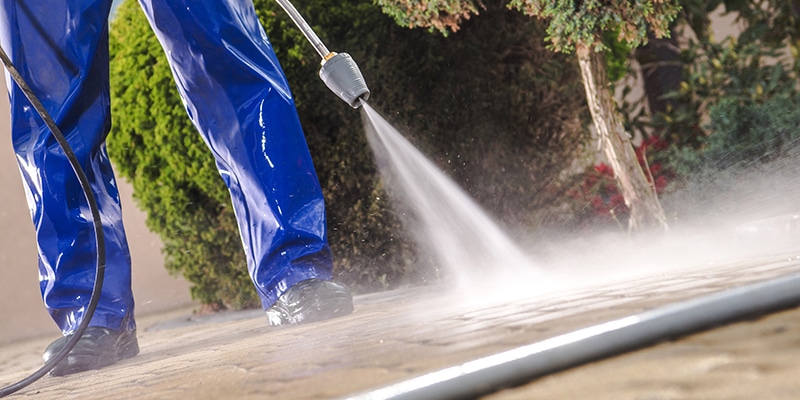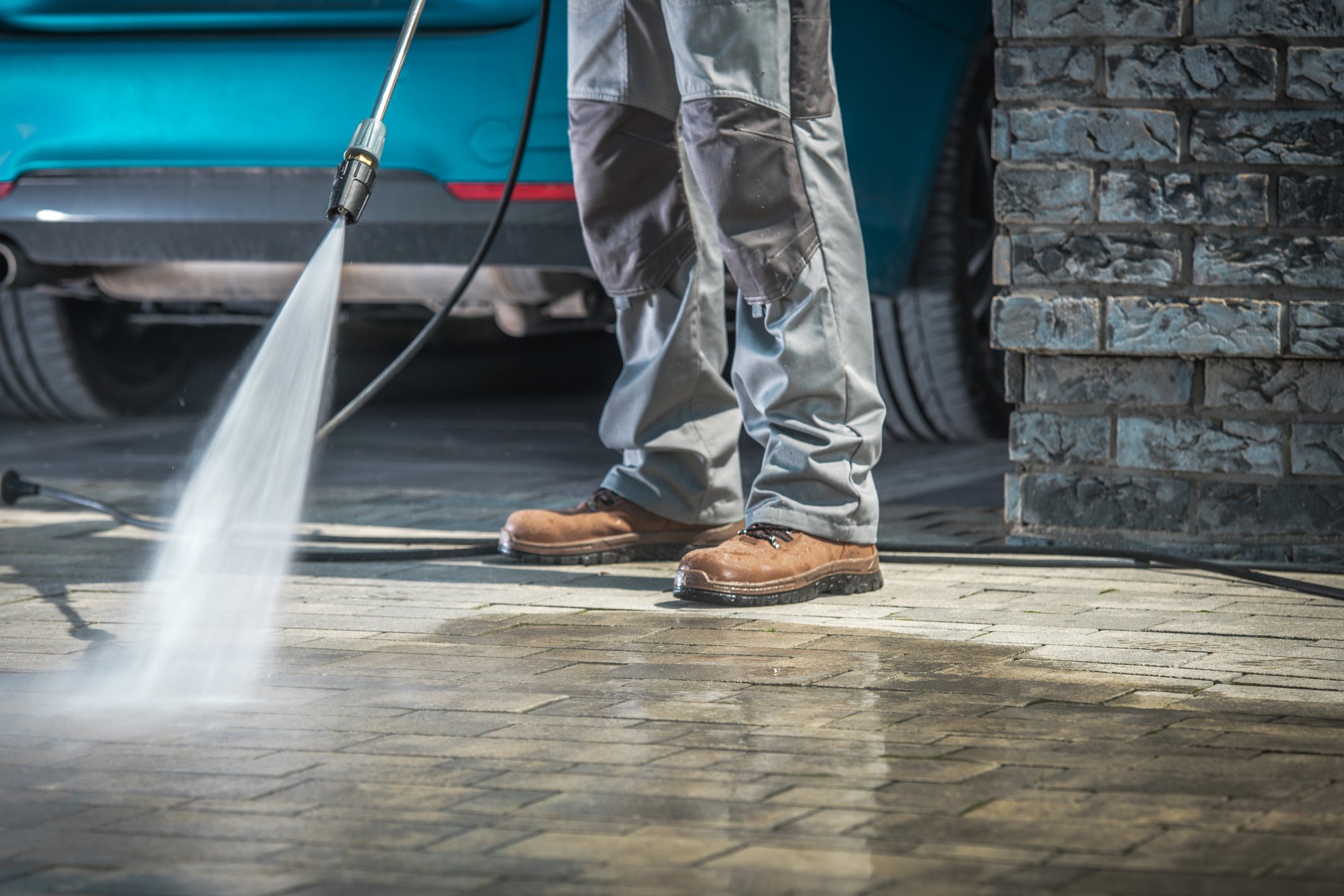Transform Your Home's Aesthetic Allure with Pressure Washing Kansas City Services
Transform Your Home's Aesthetic Allure with Pressure Washing Kansas City Services
Blog Article
The Environmental Benefits of Pressure Washing: A Cleaner Home and World
Pressure cleaning is even more than simply a reliable cleansing approach; it embodies a commitment to environmental stewardship. By utilizing high-pressure water, this technique minimizes the reliance on harsh chemicals, thus decreasing soil and water contamination. Additionally, it saves water resources, using considerably less than traditional methods. Beyond water preservation, pressure washing also plays a pivotal role in boosting air top quality by eliminating toxins and irritants. Furthermore, it enhances property long life by preventing surface area damage. What usually goes undetected, nevertheless, is how these advantages jointly contribute to a lasting and much healthier community. But what are the much deeper ramifications of these advantages?
Lowers Chemical Use
Reducing chemical use is one of the considerable ecological advantages of pressure cleaning. Pressure cleaning, on the other hand, makes use of the power of very pressurized water to attain the same, if not better, cleaning up results without the requirement for these dangerous materials (kansas city pressure washing).
Pressure washing makes certain that surfaces are not simply superficially tidy however deeply sanitized, stopping the need for duplicated chemical applications over time. By adopting pressure washing, organizations and property owners can add to a cleaner environment, lower their ecological impact, and promote a healthier environment.
Saves Water

A normal garden pipe, for example, can consume to 10 gallons of water per min, whereas pressure washers average around 2-5 gallons per minute. This stark distinction illustrates the water preservation capacity of pressure washing, making it a more sustainable choice for companies and property owners alike. By utilizing pressurized streams, these devices guarantee that every drop of water is utilized properly, lowering total usage and reducing waste.
Furthermore, the efficiency of pressure cleaning translates to quicker cleaning up times, which further adds to water preservation. Much less time spent cleaning relates to much less water used. Therefore, taking on pressure washing not just promotes cleaner surfaces yet likewise supports more comprehensive ecological sustainability by conserving among our world's precious sources. This makes it a compelling option for those committed to eco accountable practices - kansas city gutter cleaning.
Improves Air Quality
Pressure washing not only conserves water yet also substantially enhances air high quality, providing another key ecological advantage. By getting rid of these contaminants, pressure cleaning directly decreases the amount of harmful fragments launched into the ambience.
In addition, pressure washing can aid alleviate the spread of spores and germs that flourish in wet, dirty environments - power washing kansas city. When surface areas are thoroughly cleansed, the probability of these bacteria becoming air-borne is decreased, resulting in a much healthier living environment. This is specifically crucial in urban locations where air high quality is frequently endangered by higher degrees of pollution
By properly cleaning surfaces, pressure cleaning lowers the presence of these damaging substances, adding to a cleaner and more secure atmosphere. Therefore, pressure cleaning plays an essential role in enhancing air high quality and promoting general ecological wellness.

Prevents Surface Damages
The preservation of structural integrity stands as an essential ecological benefit of pressure Read Full Report washing. Surface areas such as timber, brick, and concrete can accumulate dust, mold and mildew, algae, and various other pollutants gradually. These aspects are not only unsightly but additionally add to the gradual degeneration of materials. For algae, mold and instance can preserve wetness, which results in the decay of wood structures and the erosion of concrete and block surfaces. Routine pressure cleaning efficiently removes try this web-site these unsafe compounds, thus protecting against surface area damage and lowering the requirement for constant repair services or replacements.
In addition to organic pollutants, toxins like oil, crud, and grease can also decide on surface areas, especially in industrial and urban atmospheres. These toxins can cause staining and deteriorate the architectural components gradually. Pressure cleaning eradicates these residues, making sure that the surface areas remain robust and intact. By minimizing surface area damage, pressure washing helps in preserving the initial toughness and look of various products, hence contributing to a more environmentally-friendly and sustainable living atmosphere. This positive strategy to upkeep not just sustains the long life of frameworks yet additionally minimizes the waste generated from premature replacements.
Boosts Residential Or Commercial Property Longevity
A key benefit of pressure washing is its ability to considerably enhance property long life. Normal pressure washing gets rid of unsafe compounds such as mold, mildew, algae, and dust that collect on surface areas gradually. These pollutants can create serious deterioration to structure products, bring about early aging and the demand for expensive repairs or substitutes. By getting rid of these agents, pressure washing helps to protect the try this web-site structural honesty and visual charm of homes and commercial homes.
Additionally, the removal of destructive components like salt and toxins from surfaces such as concrete, timber, and steel can avoid the start of rust and decay. This aggressive maintenance technique ensures that materials like house siding, decks, and driveways stay in optimum problem for a longer period. Home proprietors can avoid frequent maintenance cycles and the ecological influence associated with the production and disposal of building products.
In addition, pressure cleaning can also extend the life of paint and finishes. By maintaining surface areas clean, it decreases the requirement for regular repainting, therefore preserving sources and decreasing chemical runoff into the environment. In general, pressure washing is a sustainable method that contributes to both residential property long life and ecological conservation.
Verdict
In recap, pressure cleaning offers substantial ecological benefits by reducing the reliance on harsh chemicals, conserving water, boosting air top quality, and preventing surface area damages. This approach not only prolongs the longevity of materials yet additionally sustains lasting methods and contributes to a healthier ecosystem. By adopting pressure washing, a cleaner home and planet can be achieved, therefore advertising both environmental stewardship and the well-being of bordering areas.
In addition to reducing chemical usage, pressure washing additionally preserves water, highlighting its environmental benefits. Embracing pressure cleaning not only advertises cleaner surface areas but additionally sustains broader ecological sustainability by saving one of our planet's priceless resources.Pressure washing not just saves water but additionally substantially improves air top quality, providing an additional crucial environmental advantage. By efficiently cleansing surfaces, pressure washing lowers the existence of these harmful substances, contributing to a cleaner and much safer atmosphere.In recap, pressure washing deals substantial ecological advantages by minimizing the reliance on extreme chemicals, preserving water, enhancing air top quality, and avoiding surface area damage.
Report this page